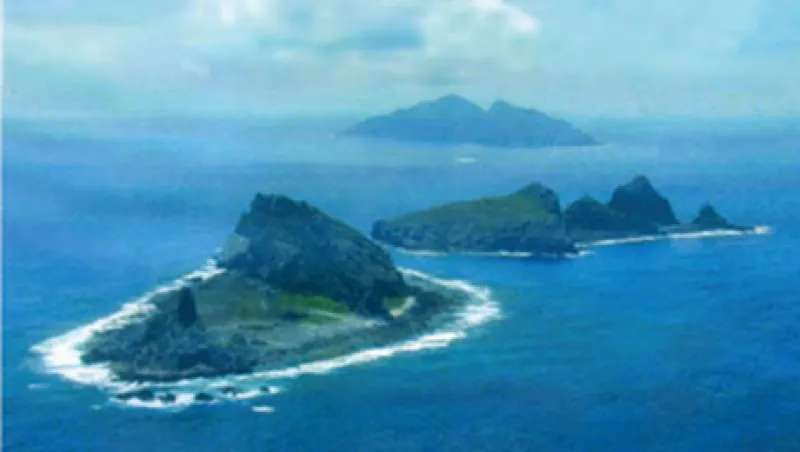Chinese consumers have begun boycotting Japanese goods in the past few weeks, angry at Japanese Prime Minister Yoshihiko Noda’s nationalization of a few islets that lie between Okinawa and Taiwan.
But few officials at the World Bank or the International Monetary Fund expected they’d be getting boycotted by major Chinese banks just because they are hosting this year’s annual IMF meeting in Tokyo.
“We were told representatives from major Chinese banks are canceling,” says a World Bank official based in Tokyo, who asked not to be identified by name. “The Chinese are angry at Japan. But we don’t understand why they are boycotting the IMF.”
Leaders in China and Japan have overcome decades of seemingly insurmountable differences to build one of the strongest trade ties in the world. Two-way trade topped $345 billion in 2011: Since 2009, China has been Japan’s biggest trade partner, and Japan has become China’s fourth largest.
But disputes crop up every once in a while. A few years ago, it was former prime minister Junichiro Koizumi’s visits to Yasukuni Shrine, which honored Japanese war dead, including several "Class A" war criminals from World War II, which angered China.
Japanese journalists who cover the prime minister say Noda underestimated the Chinese reaction when he ordered the government to purchase the islands from private Japanese owners. The nationalization was meant to preempt a move by Tokyo Governor Shintaro Ishihara, a right-wing, anti-China politician, to purchase them himself. Noda apparently feared a purchase by Ishihara would anger the Chinese even more.
The Japanese call them Senkaku, while the Chinese call them Diaoyu, and the dispute goes back to 1971 when the U.S. handed the islands back to Japan after administering them since the end of World War II. The roots of the dispute go back centuries to when the islands were part of Okinawa, which until the 1890s was an independent kingdom that was a protectorate of China.
Large repositories of oil and gas were discovered around the islands in 1969 but talks of joint exploration never materialized.
Territorial disputes have existed in between China and Japan for decades, but they always played second fiddle to their common economic interests. When Prime Minister Kakuei Tanaka met his Chinese counterpart Zhou Enlai in 1972 for normalization talks, both sides agreed to shelve the issue and to not make it an obstacle to reestablishing diplomatic ties.
But Chinese officials say things are different this time as Chinese President Hu Jintao personally felt slighted: Noda’s nationalization move came just one day after he assured Hu on the sidelines of the recently held Asia Pacific Economic Cooperation summit in Vladivostok in early September that he would handle the island dispute to the satisfaction of both sides.
“No one expected Noda would nationalize the disputed islands,” says Liu Mingle, a Beijing-based political commentator. “The islands were owned by private Japanese investor. If they were sold to another investor, China wouldn’t be so angry. But to nationalize the islands, it becomes a sovereign territorial issue.”
Japanese officials will not back down from the nationalization move, says a Tokyo-based correspondent who covers the Japan Defense Agency and asked not to be identified by name. “It is now a matter of face,” the correspondent says. “Prime Minister Noda underestimated the angry reaction in China, but he will not back down now.”
IMF managing director Christine Lagarde is calling on both sides to cool down. The shaky global economy needs Japan, the world’s third-largest economy, and China, the second-largest economy, to be fully engaged, the head of the IMF said recently to Japanese news media, warning the world could not afford for the two countries to be distracted by their bitter territorial row.
Speaking to Japanese media last week, Lagarde said the two economic powerhouses needed to show a bit of neighborly tolerance for the good of the whole world.
“Both China and Japan are key economic drivers that do not want to be distracted by territorial division,” Kyodo News agency quoted Lagarde as telling reporters in Washington ahead of this week’s meeting in Tokyo. “The current status of the economy and the global economy needs both Japan and China fully engaged.”
China and Japan must go back to focus on their common economic interests and negotiate a peaceful settlement of the dispute, including co-development of the oil and gas reserves surrounding the islands, says Beijing-based political analyst Liu. “That is the only solution,” says Liu. “Otherwise, trade tensions will only escalate from here on out.”
A sign of potential conflict occurred earlier this month, when Taiwan — which Beijing considers a breakaway province — decided in an unprecedented move to side with China, sending coast guard frigates and a fishing fleet into the dispute area, leading to a water cannon duel between them and Japanese coast guard vessels.
Watching from nearby was a squadron of Chinese coast guard frigates and a fleet of fishing vessels. “Neither China nor Japan can afford an escalation of this dispute into a full-blown crisis,” says Liu. “Everybody stands to lose.”






